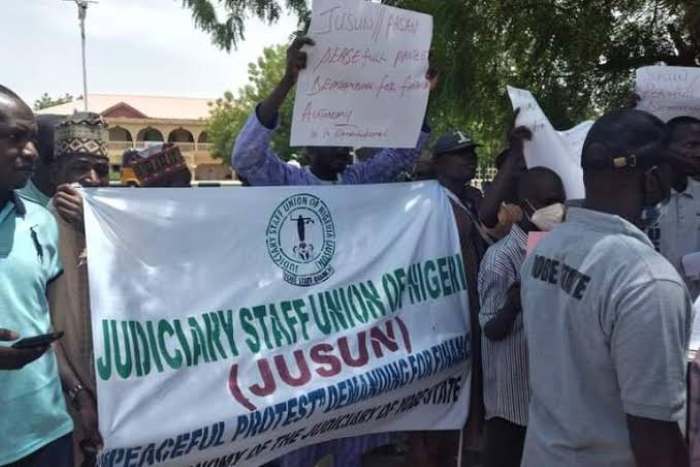
Courts across Nigeria remained shuttered on Monday as members of the Judiciary Staff Union of Nigeria (JUSUN) launched an indefinite nationwide strike, bringing legal proceedings to a halt and leaving lawyers, litigants, and judges locked out of courtrooms.
In Abuja, the gates of the Federal High Court were firmly closed early in the morning, preventing access to scheduled hearings. Prominent human rights lawyer Deji Adeyanju took to social media to express his frustration, writing, “Federal High Court gate locked. We can’t go in for our matter this morning because of industrial action by judiciary workers.”
The strike stems from unresolved disputes over unpaid allowances and poor welfare conditions affecting court staff. Despite the Supreme Court chapter of JUSUN opting out of the strike, the Federal High Court chapter has steadfastly maintained the industrial action.
A JUSUN executive confirmed on Sunday evening that, following an unproductive four-hour negotiation with the Department of State Services (DSS), the strike would proceed unabated. “Strike continues even as the Supreme Court and National Judicial Council pulled out of the strike,” the source revealed.
Efforts to resolve the crisis continue, with a critical meeting convened by the Chief Justice of Nigeria (CJN) scheduled to include key stakeholders such as the DSS. Until a resolution is reached, JUSUN members have been instructed to remain off duty.
In a brief statement, JUSUN Supreme Court Annex (SCA) Secretary, Comrade Mohammed Isah, reinforced the strike’s continuation, urging all staff to stay home pending further updates.
The Supreme Court chapter’s decision to abstain from the strike follows an emergency executive meeting held on May 31 at the Supreme Court complex, citing “peculiar circumstances” and ongoing internal discussions as reasons for their non-participation.
As the legal community awaits developments, the indefinite strike highlights growing tensions within Nigeria’s judiciary system and the urgent need for sustainable solutions to staff welfare grievances.





